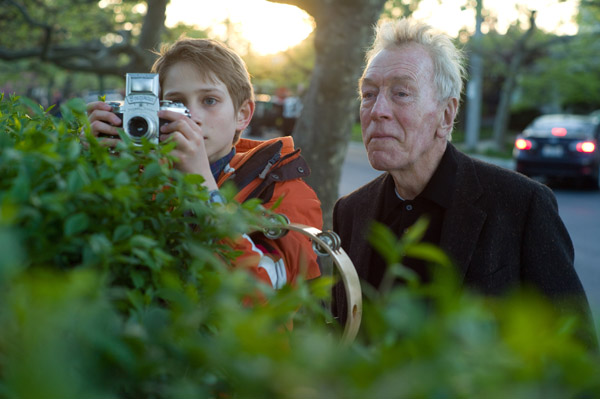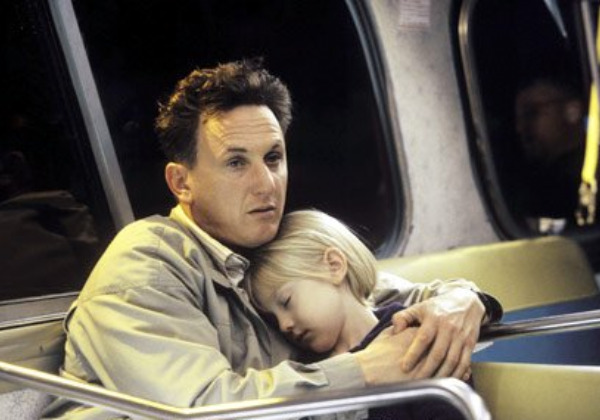6. Safe Haven

Nicholas Sparks writes sentimental books that get made into sentimental movies. Historically, critics haven’t been very happy with these adaptations. His best reviewed movie barely breaks 50% on Rotten Tomatoes. Meanwhile, three of his movies sit below a 20%. Safe Haven is one of those movies, and it’s easy to see why.
The movie revolves around a young woman moving away to escape from her abusive husband. The premise is par for the course when it comes to Nicholas Sparks. For most of the movie, it plays out like your average Sparks movie. It’s an overtly sentimental love story that meanders throughout its runtime while it looks for the perfect opportunity to slap the audience with one of the worst twists in movie history.
The final twist is enough to ruin the entire movie. It’s not like the lead-up was necessarily enchanting, but it wasn’t anything outside of what people had come to expect. This mind-boggling plot twist ups the sentimentality and throws logic out the window. Spoiling it would be a disservice because it’s something you need to see to believe. Unfortunately, that’s not a good thing.
7. Collateral Beauty

With a premise this ridiculous, it’s no wonder Collateral Beauty didn’t turn out to be a good movie. Will Smith plays a grieving man who decides to write letters to Love, Time, and Death after the death of his daughter. His colleagues then decide to hire actors to play these people in order to prove that he’s mentally unfit to run a company. See, they plan to record his encounters with these people and remove them in post-production so it looks as though he’s talking to himself. Isn’t that sweet?
In theory, the movie should show him coming to terms with his daughter’s death in a way that’s both profound and emotionally powerful. Instead, we get some of the most misguided attempts at sentimentality to ever hit the screen. Seriously, who in their right mind decided this script was anywhere near passable? Whenever something ridiculous happens, something even more ridiculous happens as if to say “hey, let’s just turn the bullshit up to 110%!”
Critics rightfully slammed the movie, but casual moviegoers were slightly more forgiving. The factory-made sentimentality works to an extent, but it shouldn’t. Collateral Beauty is about as sincere as a wedding gift you get for your neighbor you’ve met three times. Too bad they couldn’t find a way to prove the people involved in making this movie were insane.
8. Extremely Loud & Incredibly Close

There’s an awful lot of crying in 2011’s Extremely Loud & Incredibly Close, a movie about an autistic boy who loses his father on 9/11. Too bad all of that crying feels forced. Directors love exploiting developmental disabilities.
You know what else they love exploiting? The September 11th attacks. It was only a matter of time before they decided to combine the two, and guess what? It worked out in their favor. Despite earning piss-poor reviews, this movie still walked away with a Best Picture nomination, proving once and for all that Academy voters are suckers.
Oscar voters love sentimental movies, but they usually pick on the ones that at least have several redeeming qualities. This particular movie doesn’t have a whole lot going for it. Yeah, it has some emotional moments and the performances are fine, but that doesn’t excuse lazy writing.
We’re given a story that serves very little purpose other than to make us feel emotion. It’s not particularly deep. It’s not particularly engaging. It’s just kind of… there. We get it, sad things happened to this kid, but why should anyone care?
The truth is, nobody really did care. After those psychotic Oscar voters helped this movie earn a nomination, it has mostly been forgotten. In fact, it’s pretty much only remembered because it’s one of the worst Best Picture nominees ever. Overall, Extremely Loud & Incredibly Close tackled two risky topics, and it failed to deliver when it came to either of them.
9. Marley & Me

Spoilers ahead if you haven’t seen this movie already. At the same time, you probably don’t need to see the movie to know the ending. A brief summary of the plot should tell you all you need to know, but still, including a spoiler alert is probably the right thing to do. With the spoiler alert out of the way, let’s talk about why Marley & Me earns its spot on this list.
Marley & Me is a dramedy a married couple that adopts an adorable dog named Marley. From there, the film spends most of its time showing us how adorable and helpful this dog is. Then, like all dog movies, Marley is torn away from us in a grueling, sob-inducing death scene. In between, the audience also has to sit through dark scenes dealing with postpartum depression and the ups and downs of adult relationships.
To be fair, this kind of story is typical in any “dog movie.” These kinds of movies exist to make us cry. There’s rarely some kind of warning sign to let us know what’s going to happen. They tend to give us over an hour of cuteness before a horrible death scene.
That being said, Marley & Me is slightly more sentimental because of the sugary sweetness that comes before. It’s so much more “extra” than something like Old Yeller. The story is designed to make us fall in love with this furry critter, then it takes that furry critter away. People may have seen it coming, but that doesn’t make it any less manipulative.
10. I Am Sam

I Am Sam is the type of Oscar bait garbage that gives the Oscars a bad name. It’s a sappy story about a man with a developmental disability and we’re all supposed to feel bad for him and his daughter. Movies like this are risky, and in some instances they work.
For example, Rain Man and Sling Blade are well-received because they tell interesting stories with a sense of earnestness. You simply can’t say that about I Am Sam. It’s too manipulative and too obsessed with simplifying a story that would have benefited from a little bit less hand-holding.
The basic setup is simple: a 7-year old girl needs to take care of her disabled father after her mother ends up leaving. From there, the audience is manipulated into believing that this kind of father-daughter relationship is realistic and beneficial.
Yes, we get to see the negatives of the relationship, but the movie takes every opportunity to show us that these two people really love each other and need each other. It’s essentially a back-and-forth between “look how toxic this relationship is” and “look how cute they are!”
It’s undeniable emotional manipulation, but to an extent, it gets the job done. There’s a reason people really like this movie. People want to feel strong emotions, and if they ignore the blatant attempts at manipulation, they’ll likely get a little teary-eyed. The problem is that other movies do this better, and more importantly, they do it in a way that feels halfway sincere.